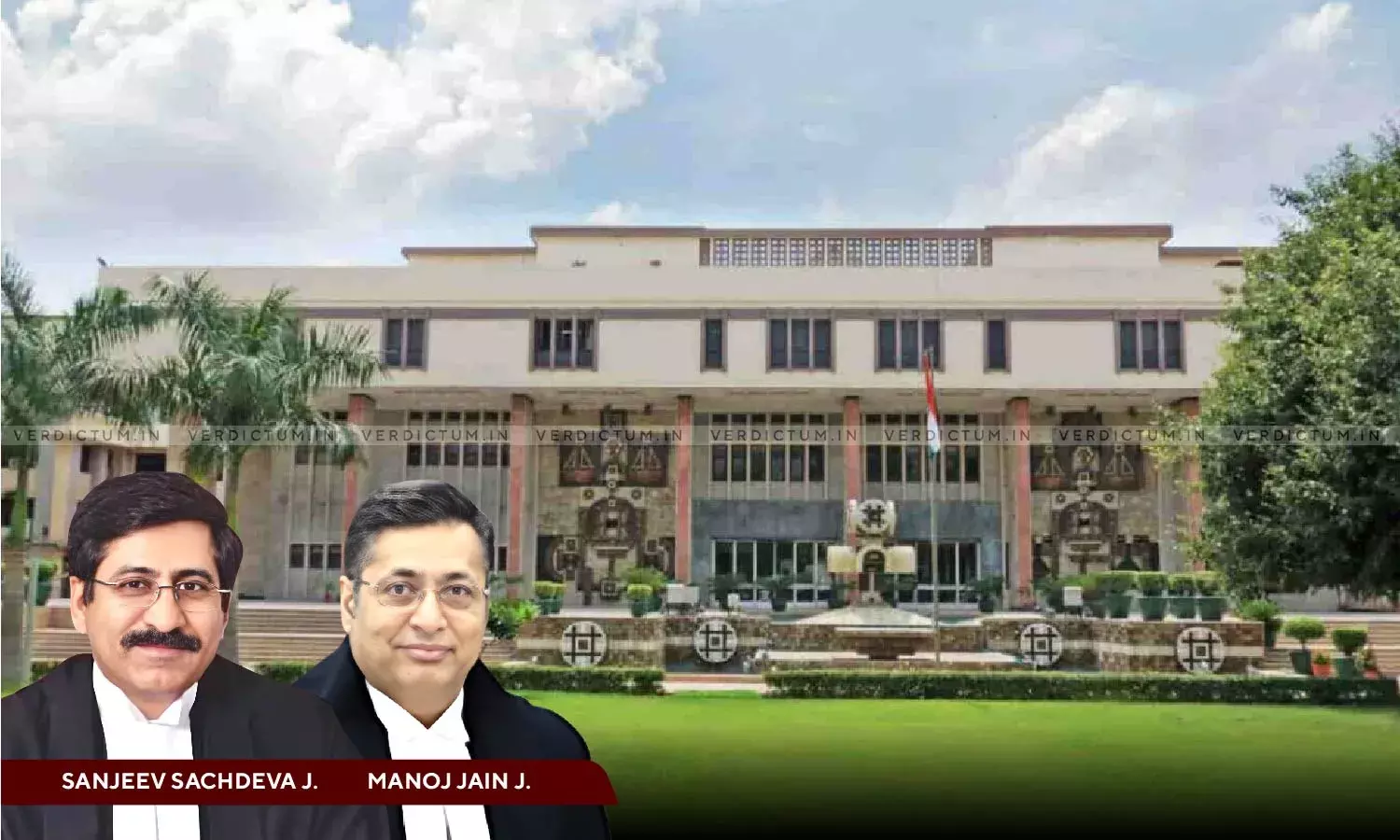"Taking Recourse To Law Cannot Be Labelled As Cruelty"- Delhi HC While Providing Relief To Estranged Wife

A Delhi High Court Bench of Justice Sanjeev Sachdeva and Justice Manoj Jain has provided relief to an estranged wife, while holding that, "Merely because appellant had taken recourse to law by initiating legal action before a court of law, it would not amount to cruelty. Taking recourse to law, cannot be, by any stretch of imagination, labeled as an instance of cruelty. Moreover there is no finding by any Court which may even remotely indicate that such action was frivolous or vexatious or that it was abuse of process of law."
Counsel Arush Bhandari appeared for the respondent before the High Court.
In this case, the Court was hearing an appeal preferred by the appellant-wife under Section 19 of the Family Courts Act, 1984, against a Family Court order, whereby, the Court dismissed her application challenging the respondent-husband's petition seeking dissolution of marriage on the ground of cruelty.
The wife contended that her husband had previously filed a divorce petition in 2013, based on certain reasons. However, he later withdrew that petition in 2016. Despite this, he filed a new petition with the same reasons, claiming that he was tired of the ongoing legal disputes with his wife. The wife argued that since the previous petition was unconditionally withdrawn, there was no valid reason for the husband to file a new petition on the same grounds.
The High Court observed that the principle of beneficium non datur, i.e. law confers upon a man no rights or benefits which he does not desire‟ would squarely apply, which is akin to the principle of res judicata. By extension of the same, it was observed that, "res judicata debars a court from exercising its jurisdiction to determine the lis if it has attained finality between the parties whereas the doctrine issue estoppel is invoked against the party. If such an issue is decided against him, he would be estopped from raising the same in the latter proceeding."
Further, the Court observed that it was manifestly evident that broad instances of cruelty remain the same and since the respondent, of his own volition, chose not to pursue his previous petition, which was already at the stage of trial and since the claim in the aforesaid petition was abandoned by him unconditionally, he could not seek divorce on the same grounds.
In light of the same, the Court held that "A careful perusal of all the grounds taken in the new petition would, as already noted, clearly suggest that his petition is based on the same cause of action. The only additional ground taken is that Appellant took recourse to law. Appellant had to take recourse to law as the Respondent and his family wanted to enter into the residential house where the Appellant was residing. Mere taking recourse to law by filling petitions/ applications before court of law, by his estranged spouse, would not, in itself, give him any fresh ground to file a new petition."
Accordingly, the application was allowed by the Court.
Cause Title: Nidhi Jain v. Ankit Jain
Click here to read/download the Judgment

